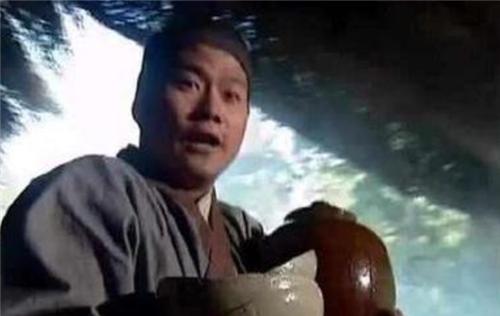In "Water Margin", there are often good men from Liangshan who go to the hotel to eat, and then do not ask the price, after eating only a piece of silver put down, the shop Xiao Er never went to count the silver, directly let the good man of Liangshan go, why is this? Is the shop small two not afraid that the guests will give less money and not enough money to eat this meal?
To talk about this problem, we need to introduce the monetary policy of ancient China a little. In ancient times, in order to promote the circulation of materials and facilitate the daily exchange of goods by the people, the state used some rare things as currency. At first, jade was used, but jade was soon mined almost; then gold was used, but China's gold reserves were not very large; later, silver began to be used.

At the same time, because the value of jade, gold, and silver is very high, ordinary people may find it difficult to gather a few gold in a lifetime, so the folk also have their own common relatively low currency, that is, copper coins. If you use an analogy, gold and silver seem to be VIP cards, membership cards and the like, while real copper coins are equivalent to one dollar or two dollars used by ordinary people.
During the Song Dynasty, the conversion relationship between silver and copper coins was about one or two silver equals consistent copper coins, so what was the purchasing power of the Song Dynasty at that time? How much silver can buy, and how much can a copper coin buy? Since our most basic subsistence material is food, we can measure the purchasing power of money by food prices.
In the era of "Water Margin", that is, during the Song Huizong period, the price of rice in the Song Dynasty fluctuated in the range of 1000-4000 wen / stone meter, and 1 stone was equivalent to about 76 kg now. We take an intermediate value of the rice price, that is, 2500 copper coins can be compared with buying 76 kilograms of rice, and the current price of rice is about 10 yuan / kg, so 76 kilograms almost need 760 yuan, and the purchasing power of 1 silver is equivalent to about 300 yuan now.
And the Song Dynasty during the Song Huizong period in the face of internal and external troubles, grain prices must have risen sharply, if it is in the Taiping period, the purchasing power of these 1 two silver can be even greater, such as the Song Dynasty rice price is the cheapest, 100 can buy 1 stone of rice, which is equivalent to 1 yuan equal to the current 7.6 yuan, 1 two silver is equivalent to the current 7600 yuan, Liangshan good Han casually take out a few or two fine pieces of silver, to say less is also a few hundred yuan, to say more can be tens of thousands of yuan, Liangshan good Han is nothing more than eating a little wine and beef, Mutton and other things, put in the current maximum is a few hundred yuan, of course, the shop small two do not need to count the amount of silver.
In fact, "Water Margin" was written at the end of the Yuan Dynasty and the beginning of the Ming Dynasty, in most of history, the purchasing power of one or two pieces of silver is more than the current 1,000 yuan, so ordinary people basically do not go out with silver, they often take a few copper coins to go out to buy some buns or eat a bowl of snacks and other things. Only those "heroes and good men" or "relatives of the emperor" and "rich merchants" in "Water Margin" or TV series will go out and take a piece of silver dollar treasure to consume.
In fact, the value of the silver they give is often far more than the amount of their consumption, and the vast majority of the silver is paid to the store as "consumption" - because you can also see that whether it is a "hero and a good man" or other people who pay silver, they never ask the price of the goods when they give money, but just take money from their bodies and give it. Meaning – don't look for it, I have money!